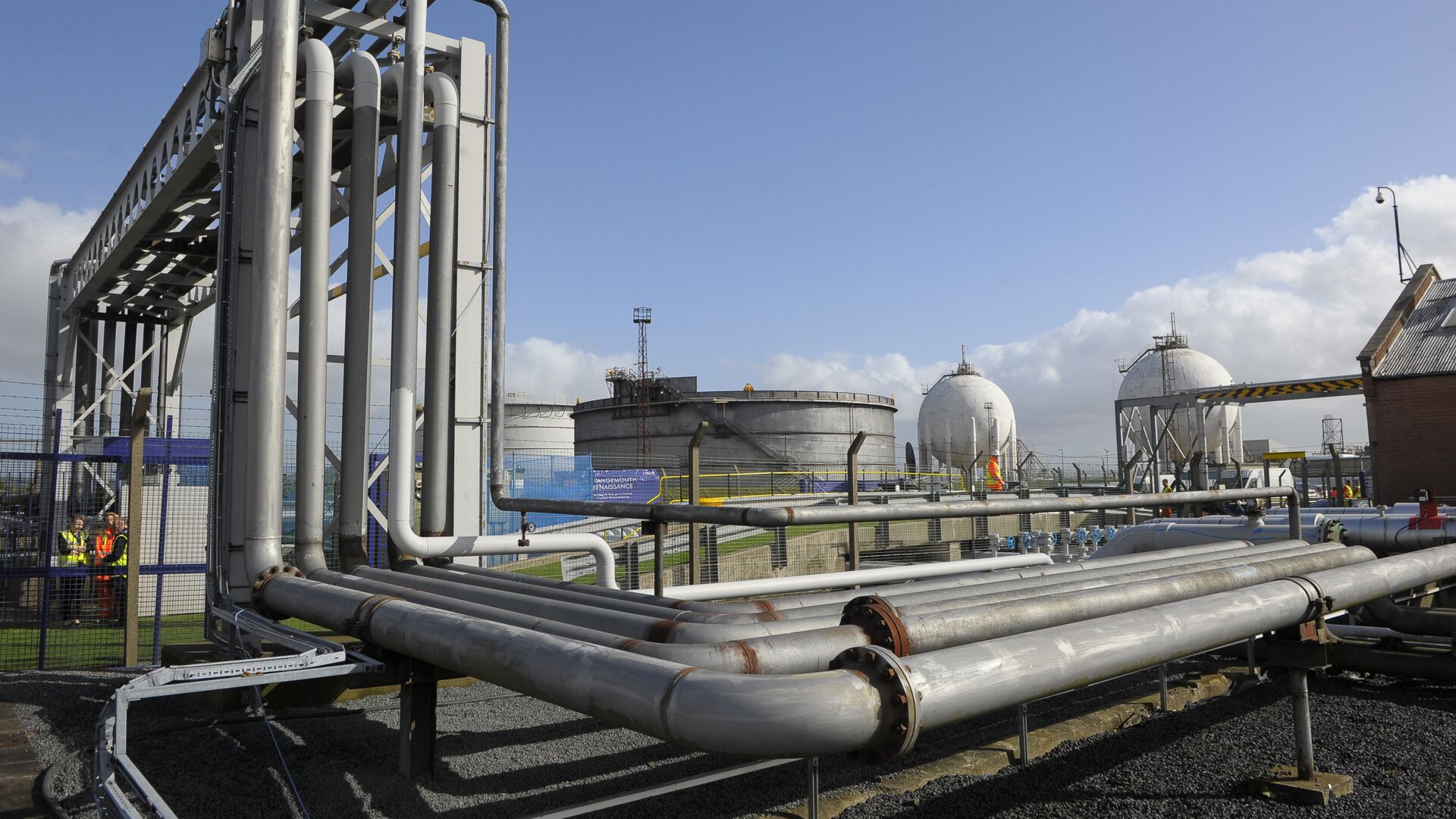UK Crisis: Why Are Gas Prices Surging, Leading To Massive Spike In Cost Of Energy To British Homes?
11:49 GMT 20.09.2021 (Updated: 13:46 GMT 01.03.2022)

© AFP 2023 / Andy Buchanan
Subscribe
The supply of electricity and gas was the responsibility of the state until 1986 when Margaret Thatcher privatised British Gas. Four years later the rest of the electricity industry was privatised and now there are dozens of companies providing energy to families and businesses in Britain.
Business Minister Kwasi Kwarteng is preparing for talks with key energy industry bosses, including the CEOs of Centrica, E.On and EDF as UK customers face a surge in prices which experts say has been caused by a rise in gas prices.
Industry group Oil & Gas UK said the wholesale price of gas had risen a whopping 250 percent since January and was up 70 percent in the last month alone.
With many companies having already guaranteed low prices, the rise in wholesale prices have sunk them.
The price of Natural Gas hit a 7-year high today, up 276% from its low in 2020. pic.twitter.com/zu5iuhrrw9
— Charlie Bilello (@charliebilello) September 16, 2021
Several smaller and medium-sized energy suppliers, such as PfP Energy, MoneyPlus, Utility Point and People’s Energy, have been forced out of business and the UK’s sixth biggest energy company, Bulb, is seeking a government bailout.
Mr Kwarteng has said the government is "reluctant" to bail out smaller companies but wants their customers to be auctioned out to those suppliers who can provide the lowest prices.
It was reported on Monday, 20 September, that the government is considering giving loans to some energy companies to help them through the crisis.
Brexit and energy prices
— Peter Jukes (@peterjukes) September 19, 2021
How it started. How it’s going pic.twitter.com/7XeQM93YPl
In January there were 70 energy suppliers in the UK but analysts say conditions in the industry are so difficult there could be less than a dozen left by the end of the year.
Greg Jackson, chief executive of Octopus Energy told the BBC: "This is the most extreme energy market in decades" and there are “millions of customers and thousands of people whose jobs are going to be affected."
So why are wholesale gas prices rising so fast and why is it such a problem for Britain?
UK energy prices are going through the roof
— Claudia Webbe MP 🇰🇳 (@ClaudiaWebbe) September 18, 2021
▪️At best energy prices will rise by 13%, with pay freezes for you, whilst energy firms profits soar
Nationalise the energy grid!
In April the International Energy Agency predicted there would be a 3.2 percent rise in global demand for gas.
The UK government’s own website says: “As the world comes out of COVID-19 lockdowns and economies reopen, we are seeing an uptick in global gas demand this year.”
That increase has been accompanied by some maintenance issues at several UK gas refineries and several other supply-side factors.
The UK government says: “High demand in Asia for Liquified Natural Gas (LNG), natural gas transported globally by ship, means less LNG than expected has reached Europe, some essential maintenance projects rescheduled from 2020 due to coronavirus coincided with necessary scheduled projects in 2021, while weather events in the US have adversely affected their LNG exports to Europe.”
The UK’s own gas fields in the North Sea have supplied plentiful supplies for years but those fields are gradually running out and Britain now imports large amounts of gas from Norway, Belgium and the Netherlands.
The Department for Business, Energy and Industrial Strategy said 60 percent of the UK's natural gas supply was imported.
For political reasons Britain has deliberately eschewed gas imports from Russia, one of the world’s biggest suppliers.
Government plan to ‘rip out’ gas boilers branded ‘utterly absurd’ by GMB https://t.co/vJ4fVRh6UO pic.twitter.com/bgN3TueX4M
— Energy Live News (@EnergyLiveNews) September 13, 2021
Gas boilers are the most common way of producing central heating and for cooking in British homes so even though renewable energy is on the rise, the majority of UK householders need a supply of gas.
Over 22 million households are connected to the gas grid and 38 percent of the UK’s gas demand was for domestic heating last year.
In the long-term the government needs families to switch over to electric boilers, powered by renewable energy.
In 2019 the then Chancellor of the Exchequer, Philip Hammond, said all new build properties would be banned from having "fossil fuel heating systems" from 2025.
But encouraging families to replace the gas boiler in their homes will take much longer. Most households will not replace their gas boiler until it is beyond repair.



